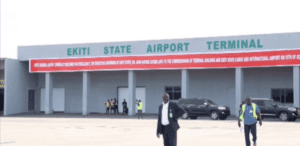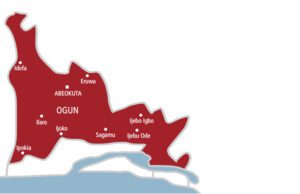
Food sufficiency: LASG meets foreign, local investors to address deficits, propel sustainable food value chain
…Seeks to boost local content in agric industry
…Now is time to invest in Lagos — SA, Hammond to investors
By Moses Adeniyi
The Lagos State Government (LASG), in a bid to address deficits in food availability has commenced talks with local and foreign investors in the agriculture industry.
The talk involving engagement with industry investors was organised by the State Government seeking to address deficits in food value chain in Lagos, while building strength on productive capacity for sustainability and local content development.
The meeting engaged talks on critical value chains in the agriculture sector, with focus on key networks including coconut, piggery, rice, seafood, fishery, red meat, and processing market, where the State has a comparative advantage.
At the first Investment Breakfast meeting organised by the Lagos State Office of Sustainable Development Goals (SDGs) and Investment, in collaboration with the Lagos State Ministry of Agriculture, to herald critical engagement with agro-allied industry stakeholders and investors, the Special Adviser to the Lagos State Governor on SDGs and Investment, Mrs. Solape Hammond, said there are robust opportunists in the food value chain which are not optimised and harnessed.
According to her, the engagement was aimed at creating a path for investors to optimise the opportunities of the value chain in the framework of the streams of operations.
“It’s to showcase opportunities for investment in Lagos in the food value chain,” Hammond said, mentioning that the idea harps on creating a working system for food safety and sufficiency in Lagos.
“We already have the Lagos State agriculture roadmap that focuses on eight value chains. We also have talked about food and market safety which we also crafted to help us bring in some sanity into the system. The whole idea is for Lagos to be relatively food sufficient, which we realised was a core need, especially after the impacts of COVID-19.”
She said it was essential for investors to take advantage of the opportunities, decrying that the importation of 70 percent food needs into the State was a deficit, where advantages lie for investors in such value chain as seafood which the State with large expanse of sea area has comparative advantage to leverage on.
“Today, food comes in, we don’t know when it comes in, we don’t know where its coming from, we don’t know in what condition its coming in and its generating a lot food waste and unhealthy food into the system and its making prices high,” Hammond said.
“We also want to make sure we optimise the African Continental Free Trade Zone Agreement. We don’t want to be a consuming hub, we want to be a productive hub. We want companies to be established here and export to the rest of Africa,” Hammond said.
“It is to show them (Investors) what the opportunities are; upstream, downstream and moving into more specialised manufacturing and so on,” the Special Adviser said.
She mentioned that the need for a working system to track the supply chain of food in Lagos was pertinent.
This, according to her, would enhance not only effective safety system, but also enable proper price control “to address food crisis in Lagos,” which she said may be as three times higher than other urban centres in the Country.
Hammond submitted that “when you have more visibility, there can be more investment in storage, transport, and preservative methods because they know where the food is coming from and when it’s coming in – prices can be better, quality can be better.”
Harping on the significance of private sector participation, she said, “Even with our rice mill (Imota) being the fifth largest in the world, it can provide enough rice for only about five percent of Lagosians. So, you can image if you want to feed Africa, there is so much to be done. There are opportunities for many much more.”
She disclosed Lagos has eight free zones with easy platforms to invest and “basically plug and play,” mentioning that “we are building standard factories in our free zones; we have port and air access.”
“More than 70 percent of cargoes already come through air. We’ve got our rail. So, now is the time to invest in Lagos,” the Special Adviser said.
She reiterated that the commissioning later this year of the Imota Rice Mill, the largest in West Africa, would upon operation breathe new realities in the rice value chain.
Speaking to Nigerian NewsDirect in an interview, the Senior Special Assistant to the Governor on SDGs and Investment, Mr Lekan Fatodu, said the meeting was to seize “opportunities to address food insecurity and to ensure effectiveness and efficiency in food production and availability of food for the Lagos population.”
“Basically, we understand the importance of food in a population like Lagos State. We are also using this avenue to engage experts to enhance our effort towards food value chain, making sure we provide opportunities for investment within the food value chain in Lagos,” he said.
The Special Adviser to the Lagos State Governor on Agriculture, Dr. Rotimi Fashola, said the Government has continued to leverage Public Private Partnership (PPP) for sustainability on various agriculture value chains.
“PPP gives us sustainability of the system, that is important,” he said.
“As a state, we are completing the rice meal this year and rice would be produced this year which is very important. We have come a long way. By the time the rice starts rolling out, it’s going to be a major plus for us,” Fashola said.
In interview with Nigerian NewsDirect on the engagement, the Chairman, Rainbow Crescent Investment, Dr. Jubril Tafawa Balewa said the collaboration was a “wonderful initiative,” reflecting Lagos is ahead of other States in investment drives.
He said the collaboration would “absolutely address critical investment bottlenecks and problems, while creating opportunities for the private sector.”



